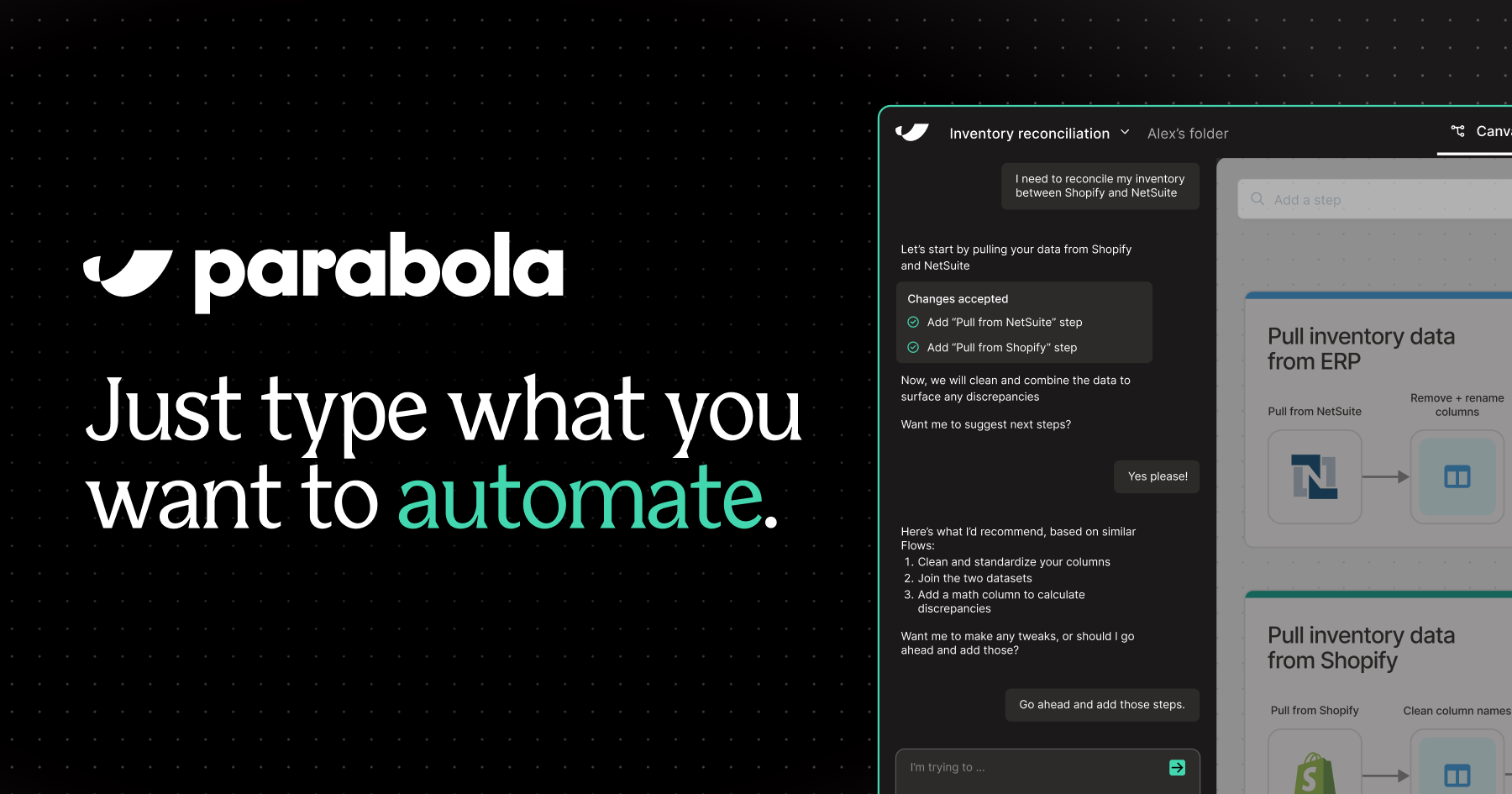Key Takeaways
- Traditional ETL tools struggle to meet modern data integration demands
- Enterprise solutions like PowerCenter and Talend require significant technical expertise
- Cloud-native solutions offer scalability but may have limitations with hybrid deployments
- Self-service platforms provide accessibility but can be costly for growing organizations
- No-code solutions like Parabola eliminate common ETL challenges through automated workflows
Why traditional ETL tools fall short
Most businesses rely on basic ETL tools that weren't built for today's dynamic data environment. These platforms often provide limited automation, lack real-time processing capabilities, and create data quality issues. Modern solutions like Parabola are transforming how businesses handle data integration, improving efficiency by 65% through no-code automation.
Leading ETL tools
Informatica PowerCenter
Enterprise-grade ETL platform offering comprehensive data integration capabilities. PowerCenter provides robust transformation features and extensive connectivity but requires significant technical expertise.
The platform excels at complex enterprise operations. However, implementation typically takes 3-6 months, and organizations need dedicated technical teams. Custom workflows require additional development resources.
Talend
Open-source data integration platform with broad connectivity options. While offering strong community support, Talend's technical complexity can overwhelm smaller teams.
Users praise its flexibility but struggle with performance optimization and maintenance overhead. Enterprise features require premium licensing.
AWS Glue
Cloud-native ETL service with serverless architecture. AWS Glue offers seamless integration with Amazon services but can be costly for high-volume processing.
The platform provides excellent scalability but faces challenges with hybrid deployments. Limited support for non-AWS sources restricts versatility.
Alteryx
Self-service data analytics platform with built-in ETL capabilities. While offering intuitive interfaces, Alteryx's pricing model can be prohibitive for growing organizations.
Organizations appreciate its visual workflow builder but face challenges with large-scale deployments. Advanced features require significant investment, prompting many companiies to consider alternatives.
Fivetran
Cloud-based ELT platform focusing on automated data pipelines. Fivetran delivers rapid deployment but offers limited transformation capabilities.
The platform excels at data loading but struggles with complex transformations. Pricing scales sharply with data volume.
The best ETL tool for non-technical teams
Unlike traditional solutions, Parabola's no-code automation platform eliminates common ETL challenges through:
- Instant implementation with pre-built connectors
- Flexible transformation workflows that adapt to your needs
- Real-time data processing
- Automated quality checks and alerts
- Custom integration flows without coding
Making the right choice for your business
When evaluating ETL solutions, consider:
- Data volume and complexity
- Technical resource availability
- Integration requirements
- Transformation needs
- Total cost of ownership
Ready to transform your data integration process? Get started with Parabola and eliminate manual data processing today.

